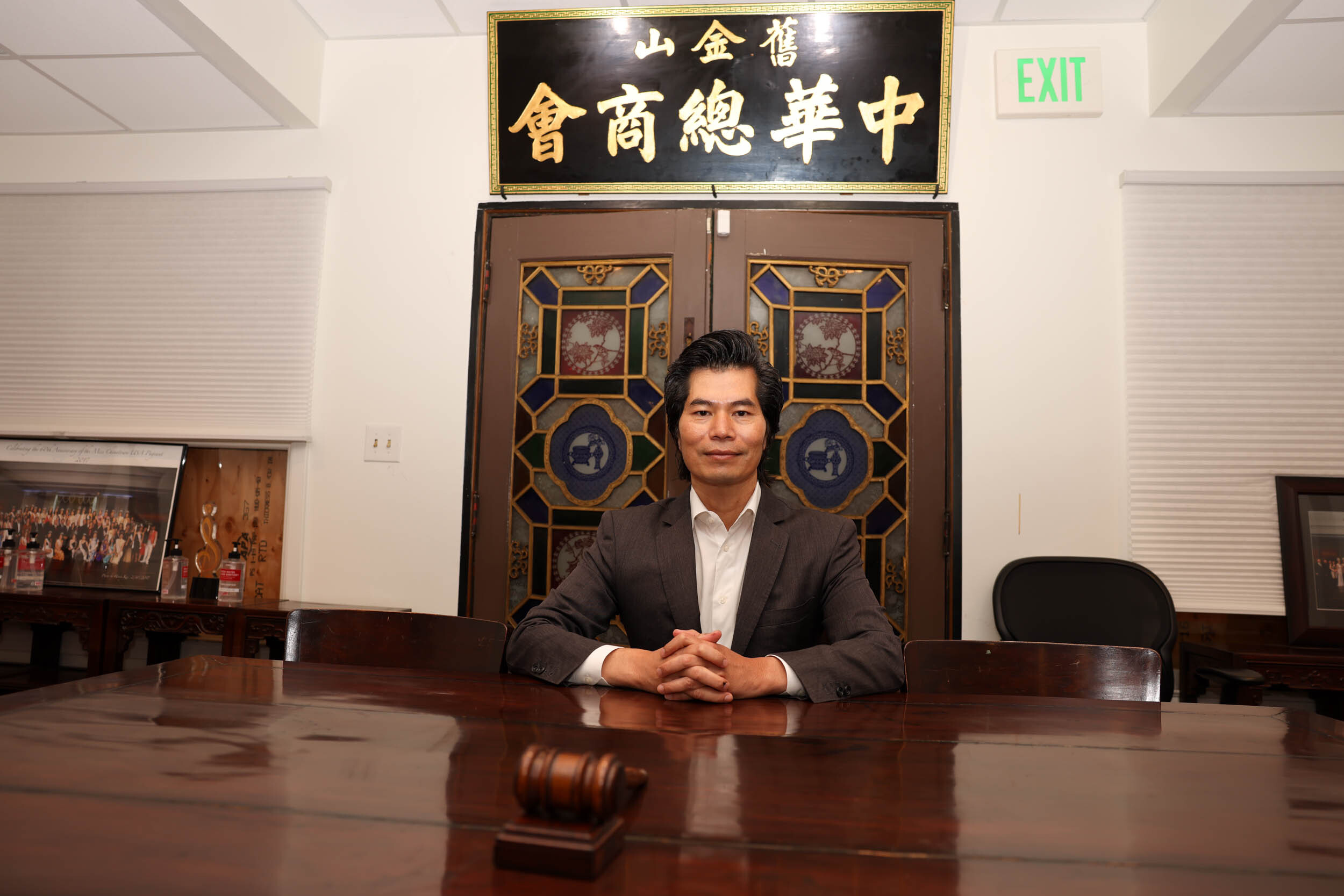It organizes San Francisco’s iconic Chinese New Year Parade that often attracts tens of thousands of visitors to the nation’s oldest Chinatown. It puts on the Miss Chinatown USA Pageant, a beauty contest with a 64-year history. It also hosts the annual Lunar New Year street fair where attendees shop during the festivities.
It’s the Chinese Chamber of Commerce, a century-old organization promoting Chinese American businesses and culture. The late Rose Pak—the preeminent Chinese American powerbroker in San Francisco’s politics—used to lead the group.
And this month, the historic nonprofit elected a new president: Donald Luu.
Luu, an immigrant of Vietnamese Chinese descent, comes at a pivotal moment for the association, which has been grappling with fallout from the protracted pandemic and a City Hall corruption scandal that ensnared some chamber members.
We caught up with the chamber’s new chief to learn more about his biography and ambitions. Here are five things to know.
He came to SF from Vietnam—by way of Hong Kong.
Luu’s journey to San Francisco was a difficult one.
Born and raised in Vietnam, Luu comes from a multicultural family: his mother is Vietnamese and his father is Chinese. His family fled to Hong Kong on a boat in the late 1970s to escape the war. After living in a refugee camp for two years, the Luus moved to the U.S. in 1981.
Despite the hardship, Luu said the experience brought his family closer together.
He was a child during those years, he said, and doesn’t quite remember everything, like how long it took for their boat to get from Vietnam to Hong Kong. But some details were seared in his mind, like hearing sirens and everyone scrambling to hide.
When the Luus arrived in the United States, they spent some months in Connecticut before making their way to San Francisco’s Tenderloin. Luu said he was 12 when he moved to the city. Later they settled into the Ping Yuen public housing project in Chinatown.
He’s relatively young for a chamber president.
Like it or not, most traditional Chinatown organizations are still dominated by older Chinese men. But Luu, at 53 years old, is relatively young for a position historically occupied by people in their 70s or beyond.
He said he’s proud of bringing a younger generation’s perspectives to the chamber to help promote business opportunities for Chinatown, uplift the interests of Chinese American merchants citywide and bolster bridges between China and the Bay Area.
Last month, the chamber hosted its 107th Board of Directors’ swearing-in ceremony in Chinatown, which drew dozens of dignitaries, including former Mayor Willie Brown, who administered the oaths of office.
Among the directors, Luu will work with on the chamber board are several younger than 40, which he believes will help energize and bring new ideas to the historic business organization.
He’s one of Rose Pak’s Proteges.
When we talk about Rose Pak, we think about her phenomenal political power and her deep connections in the Chinese community and City Hall. But her official title was somewhat low-profile: consultant for the Chinese Chamber of Commerce.
Luu, who’s considered a protege of Pak, was recruited by her in 2011 to join the chamber. When he thinks about Pak—who died six years ago, in 2016—Luu said he feels grateful for all she’d done for the community. A year after Pak died, San Francisco lost its first Asian American mayor, too: Ed Lee.
Though Pak pushed some of her proteges to pursue positions at bigger community nonprofits, City Hall or beyond, Luu said she would have wanted him to stay within the business organization.
More than career, he said, community work is what drives him.
Luu finished school in the San Francisco Unified School District before going on to major in engineering at San Jose State University. He started his own architectural and design company, which specialized in hospitals, parks, and other institutional projects.
Luu said he’s satisfied with his business success, but that’s only part of what drives him.
For the past decade, Luu has been increasingly turned toward community work, which he’s found more personally fulfilling.
“Chinatown gave me so much,” Luu said, so it’s time for him to give back. He said he entered a phase of his life where he can have more control of his dedication to the community, from promoting and protecting small businesses, and also hosting cultural events to unify the community.
He’s helping the chamber recover from a corruption scandal.
A high-profile corruption scandal at City Hall has deeply shaken the chamber by ensnaring two former board members: Walter Wong and Florence Kong, who allegedly bribed city officials and pleaded guilty to federal corruption charges.
Now, it’s up to Luu to help the organization move forward.
“People make mistakes,” he said. “They make wrong decisions. The chamber will move on from this.”
Luu said after the scandals broke, both Wong and Kong “dutifully resigned,” which was required by the chamber’s bylaws lest anyone compromise the integrity of the organization.
Still, Luu said the chamber can’t control the individual conduct of board members, and that there should be a line separating their personal problems from the contributions of an otherwise reputable organization.
Luu took the president’s role in July and his term will be one year until the chamber elects someone else to the role.
Going forward, Luu said he wants to make the chamber more cautious and transparent—both keys to a brighter future. But he also believes in second chances, as long as there’s accountability and personal growth.
